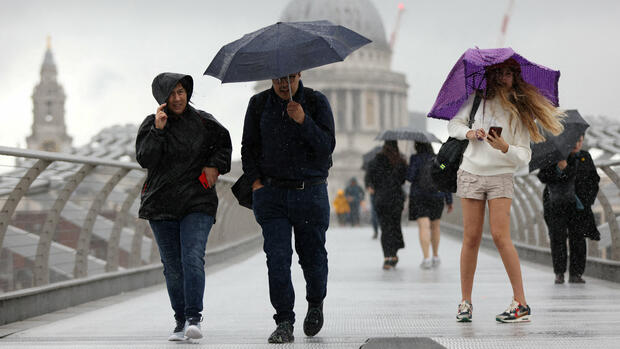The British have been shopping less in recent months – partly because of the rain.
(Photo: Reuters)
London Unusually heavy rain and strikes gave the British economy a surprisingly bad start to the second half of the year. Gross domestic product (GDP) fell by 0.5 percent in July compared to the previous month, the ONS statistics office announced on Wednesday. This is the biggest decline since the beginning of the year.
This comes as a surprise: Experts surveyed by the Reuters news agency had only expected a decline of 0.2 percent.
All important sectors – from industry to construction to service providers – recorded a decline. But it was said that the strikes in the health sector and in schools in particular slowed things down noticeably. In addition, an unusually high amount of rain caused a slump in consumption and put a strain on the construction industry.
The gloomy figures are also depressing the British currency. Sterling fell 0.3 percent to $1.25, on track to post its biggest daily loss in a week. The euro gained 0.1 percent against the pound, reaching its highest level in a month at 86.24 pence.
The Bank of England (BoE) will decide on its interest rate next week. From the perspective of its boss Andrew Bailey, the central bank is “much closer” to the interest rate peak after a series of monetary policy tightenings. However, with a view to the next meeting on September 21st, Bailey recently left it open whether things would go up even further.
The BoE has decided on an increase at all of its past 14 meetings and most recently raised the key interest rate to 5.25 percent – the highest level in 15 years. This is intended to curb inflation, but the high interest rates are also putting a strain on the economy.
More: How is the British economy doing? Sunak celebrates the success, but economists remain skeptical
